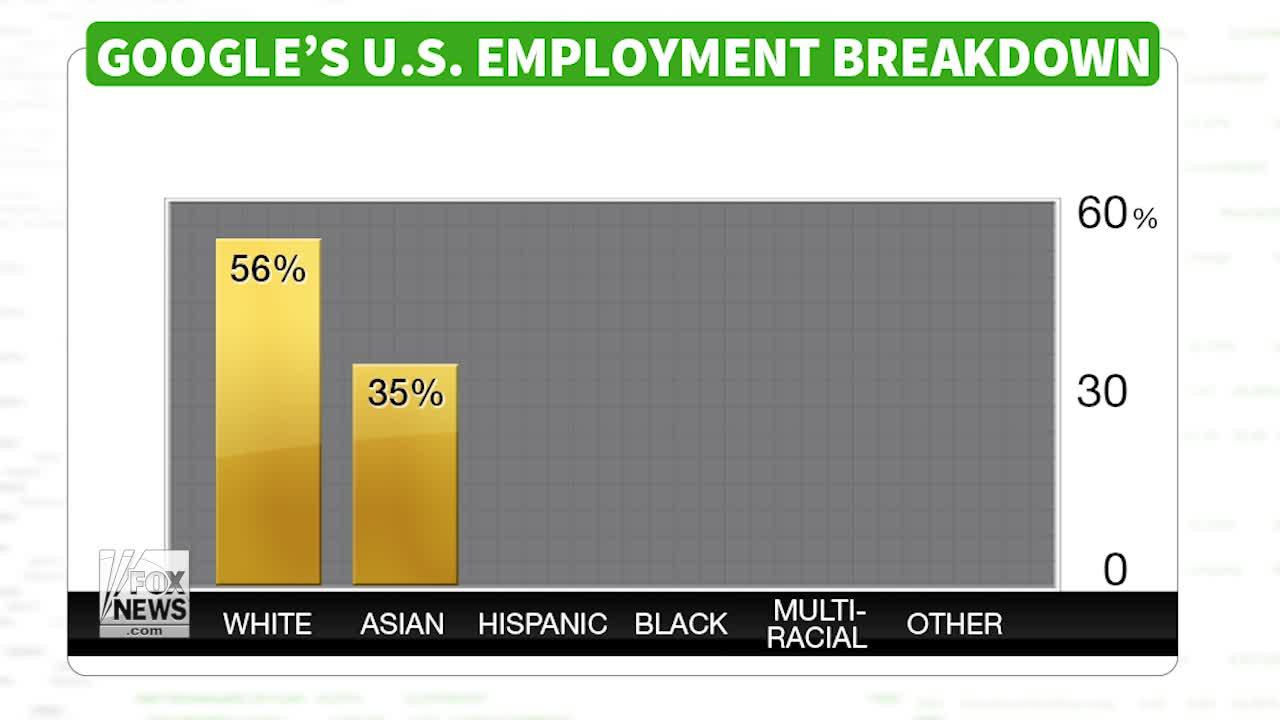Google Fires Employee Who Wrote Memo Criticizing Diversity Initiatives -- Update
Google on Monday fired the employee who wrote an internal memo suggesting men are better suited for tech jobs than women, escalating a debate over free speech at the company.
Google Chief Executive Sundar Pichai said in an email to his staff that the employee's memo violated company policy. Google, part of Alphabet Inc., didn't publicly name the memo's author.
Software engineer James Damore, who said in an email that he wrote the memo and was fired for it, said he was considering legal action against Google for firing him after he complained to federal labor officials about executives' alleged efforts to silence him.
Mr. Damore published an internal memo last week that criticized Google's efforts to increase diversity at the company, arguing the program discriminated against some employees. He said men were generally better at engineering jobs than women and a liberal bias among executives and many employees made it difficult to discuss the issue at Google.
The memo went viral inside the company, which spilled into public view when Google employees publicly criticized it and eventually leaked it to the media. The controversy posed a thorny question for one of the world's largest companies, one that espouses free speech: How would it handle an employee who offered opinions that were, to many inside the company, offensive?
"Portions of the memo violate our code of conduct and cross the line by advancing harmful gender stereotypes in our workplace," Mr. Pichai said in his email. He added that the company's code of conduct requires "each Googler to do their utmost to create a workplace culture that is free of harassment, intimidation, bias and unlawful discrimination."
Mr. Damore said in an email that he "was fired for 'perpetuating gender stereotypes,' but I believe it was politically motivated." He said he believes he has "a legal right to express my concerns about the terms and conditions of my working environment and to bring up potentially illegal behavior, which is what my document does."
Before he was fired, several Google executives publicly criticized his memo. Mr. Damore said that prompted him to submit a formal charge to the National Labor Relations Board "about how Google's upper management is misrepresenting and shaming me in order to silence my complaints." In reference to his firing, he added, "It's illegal to retaliate against a NLRB charge. I'm currently exploring all possible legal remedies."
Mr. Damore's firing is likely to spark a larger debate inside and outside Google about free speech. The memo received both support and disapproval from colleagues inside Google, according to news reports.
Mr. Pichai said in his Monday email: "We strongly support the right of Googlers to express themselves, and much of what was in that memo is fair to debate, regardless of whether a vast majority of Googlers disagree with it." Mr. Pichai said he scheduled an employee town hall on Thursday to discuss the issue.
Danielle Brown, Google's vice president for diversity and inclusion, said in a statement to employees after the memo was published online Saturday that it "advanced incorrect assumptions about gender" and is "not a viewpoint that I or this company endorses, promotes or encourages." Google engineering executive Ari Balogh, one of Mr. Damore's managers, wrote that the memo "troubled me deeply" because it suggested "most women, or men, feel or act a certain way. That is stereotyping, and it is harmful."
The memo also drew condemnation from outside Google. Facebook Inc. Chief Operating Officer Sheryl Sandberg posted a story on Facebook that said differences between men and women were exaggerated. "Inequality in tech isn't due to gender differences. It's due to cultural stereotypes that persist. We all need to do more," she wrote.
The controversy comes against a backdrop of broader debates about diversity in the tech industry, which employs a majority of white or Asian men, particularly in technical and leadership roles. A string of sexual-harassment scandals has also plagued some tech companies and investment firms over the past year.
Google, meanwhile, is facing a Labor Department investigation into whether it compensates men and women differently. Last month, an administrative law judge ruled Google had to turn over some data to the Labor Department as part of the probe, which began as a routine audit into a federal contractor. Google sells advertising and cloud services to the federal government. During the case, a Labor Department official testified that initial evidence showed Google systematically pays women less than men.
Google denies the allegation, saying its internal analyses have shown no pay gap among Alphabet's nearly 76,000 employees. The Labor Department hasn't formally charged Google with any wrongdoing.
Google said in its annual diversity report in June that 31% of its employees are women, unchanged from a year earlier. The percentage of black employees also was unchanged at 2%, and the number of Hispanic workers increased to 4% from 3%. Most Google workers are white and Asian men.
Write to Jack Nicas at jack.nicas@wsj.com
(END) Dow Jones Newswires
August 08, 2017 01:42 ET (05:42 GMT)




















